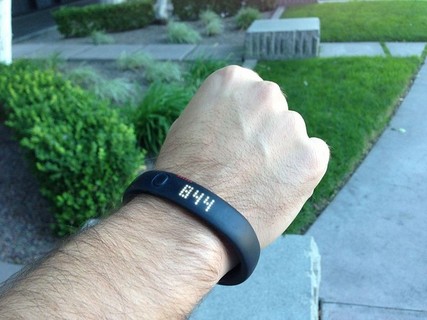For decades, paper-based survey methods have been the cornerstone of clinical trials. In fact, the majority of label claims on the market today are the result of paper-based surveys.
Yet there is a growing shift toward electronic data collection in clinical trials. Electronic data collection is faster, more reliable, and more cost effective than data collected via paper, but there is some question as to the best way to collect the data. While web portals, mobile applications, voice systems, and even handheld devices are all viable options, in many cases, one of the best options for clinical trial data collection is something that many of us already use: Wearables.
The Advantages of Wearable Technology for Clinical Trials
Chances are, if you aren’t wearing something like a FitBit or an Apple Watch right now, you have at one time — or know plenty of people who do. These devices have their limitations, but they do a better-than-average job of tracking your activity and, depending on the device, certain vital signs like heart rate and temperature.
When it comes to eCOA clinical trials, wearables like these have some significant advantages over paper trials. Not only is data recorded in real-time, but wearables can also:
Reduce bias. One significant issue in clinical trials is the tendency for subjects to report biased data. Patients may inadvertently report their outcomes as better or worse than they actually are as a means of influencing the outcome of the study.
Maintain focus. Another problem with paper surveys is a tendency for patients to offer more or less information as required. Adding notes in the margins may seem helpful, but that data is unusable in the study. Wearables allow researchers to keep data collection focused on the information they really need.
Reduce “parking lot syndrome.” It’s not uncommon for patients to fall behind on their diaries or surveys, and attempt to catch up just before their appointments. With wearables, data is collected on an ongoing basis, eliminating the possibility that patients will report inaccurate information from memory.
Increase accuracy. Recording information from memory is one problem with accuracy. Other issues may include answering questions incorrectly, filling in survey blanks out of order, and errors in data transfer from paper to electronic media.
Reduce costs. When the diary is collected electronically, it can reduce the overall costs of the trial significantly.
Typically, wearables have some other applications beyond tracking the number of steps one takes every day. So why aren’t they being widely used in clinical trials?
The Drawbacks of Wearables
The biggest stumbling block to using wearable devices in clinical trials right now is the fact that the majority of devices on the market today are marketed for consumer use, and not approved by the FDA for clinical trial use. In addition, even the most advanced devices may not collect all of the data that researchers need to measure the efficacy of new treatments.
Other issues consistently brought up in the discussion of the feasibility of using wearable technology for clinical trials is the likelihood that study subjects will actually use the devices. Studies show many people who use devices like FitBit or Jawbone only wear them for a few months, and in many cases, inconsistently. Another issue is how to control the amount of data collected by the devices and maintaining the privacy of study participants with “always on” devices. And of course, there is always the likelihood that some patients may be unwilling or unable to wear the devices, potentially affecting study outcomes.
That being said, there are new wearable devices in development specifically for clinical use. While in some cases these devices may appear to resemble the devices we’re all familiar with, many are smaller, more flexible, and more comfortable than consumer devices. The new medical wearables are also more advanced, with the ability to measure blood pressure, fluid levels, and more, giving researchers more insight into patient outcomes — and ultimately, they hope, more accurate results and effective treatments.
The bottom line is that while there are still issues to be worked out, there is great potential for the use of wearable devices in medical trials. With the shift toward electronic data collection, it only makes sense to use technology for more accurate readings — and take the guesswork out of reporting for both patients and researchers.







